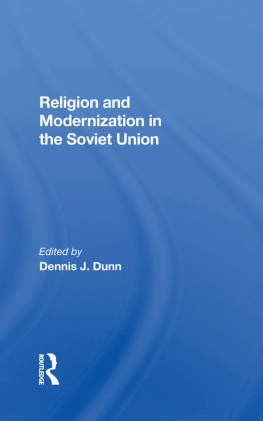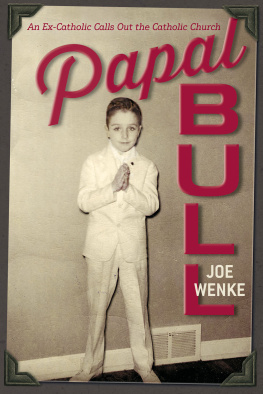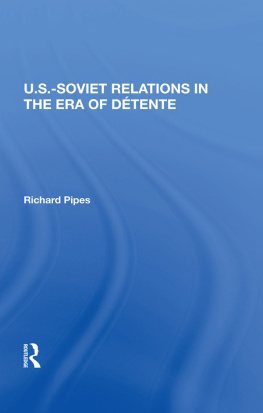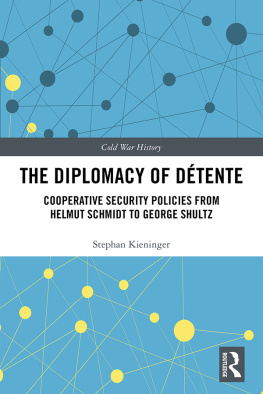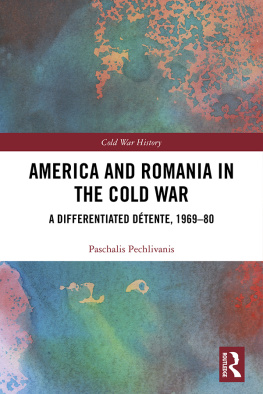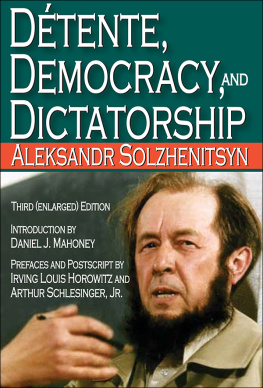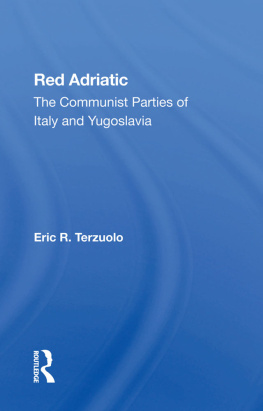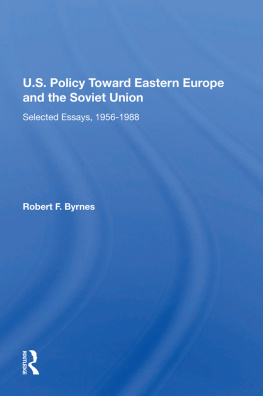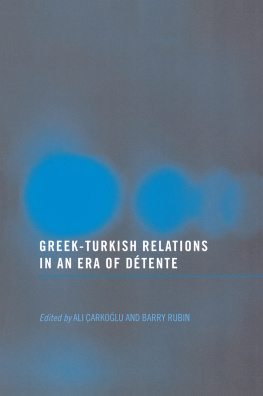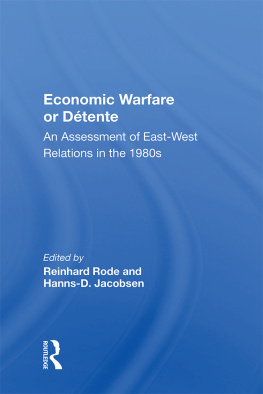
Dtente and Papal-Communist Relations, 1962-1978
Westview Replica Editions
This book is a Westview Replica Edition. The concept of Replica Editions is a response to the crisis in academic and informational publishing. Library budgets for books have been severely curtailed; economic pressures on the university presses and the few private publishing companies primarily interested in scholarly manuscripts have severely limited the capacity of the industry to properly serve the academic and research communities. Many manuscripts dealing with important subjects, often representing the highest level of scholarship, are today not economically viable publishing projects. Or, if they are accepted for publication, they are often subject to lead times ranging from one to three years. Scholars are understandably frustrated when they realize that their first-class research cannot be published within a reasonable time frame, if at all.
Westview Replica Editions are our practical solution to the problem. The concept is simple. We accept a manuscript in camera-ready form and move it immediately into the production process. The responsibility for textual and copy editing lies with the author or sponsoring organization. If necessary we will advise the author on proper preparation of footnotes and bibliography. We prefer that the manuscript be typed according to our specifications, though it may be acceptable as typed for a dissertation or prepared in some other clearly organized and readable way. The end result is a book produced by lithography and bound in hard covers. Initial edition sizes range from 400 to 600 copies, and a number of recent Replicas are already in second printings. We include among Westview Replica Editions only works of outstanding scholarly quality or of great informational value, and we will continue to exercise our usual editorial standards and quality control.
Dtente and Papal-Communist Relations, 19621978
Dennis J. Dunn
The Catholic Church and the various communist governments of Europe have been vitally involved in the process of detente, moving from the silence of the Cold War to the stage of dialogue despite the persistence of religious persecution in the communist world. In this detailed study of recent developments, Professor Dunn discusses the motivating factors in papal-communist relations and chronicles the major events in dtente policy in the Soviet Union and those countries of Eastern EuropePoland, Hungary, Czechoslovakia, and Yugo-slavia--Where the Catholic Church is at least nominally the religion of 30% or more of the population.
Dennis J. Dunn is associate professor of history and director of the Institute for the Study of Religion and Communism at Southwest Texas State University.
Dtente and Papal-Communist Relations, 1962-1978
Dennis J. Dunn
First published 1979 by Westview Press, Inc.
Published 2018 by Routledge
52 Vanderbilt Avenue, New York, NY 10017
2 Park Square, Milton Park, Abingdon, Oxon OX14 4RN
Routledge is an imprint of the Taylor & Francis Group, an informa business
Copyright 1979 Taylor & Francis
All rights reserved. No part of this book may be reprinted or reproduced or utilised in any form or by any electronic, mechanical, or other means, now known or hereafter invented, including photocopying and recording, or in any information storage or retrieval system, without permission in writing from the publishers.
Notice:
Product or corporate names may be trademarks or registered trademarks, and are used only for identification and explanation without intent to infringe.
Library of Congress Catalog Card Number: 78-21436
ISBN 13: 978-0-367-01763-7 (hbk)
For my mother and father
Detente, the term commonly used to describe the psychological aspects of the armed truce which has existed between the Soviet Union and the United States and its Allies since the 1960s, remains an important feature of the contemporary world. The "relaxation of tension in international relations" to give the word its Russian rendering--has not yet yielded any epoch-making results, but is pursued by the non-Communist and Communist governments for their reasons which are not always the same. For the former, answerable as they are to democratic peoples with no love for war, detente implies a hopeful, progressive endeavor to replace polemics with the mutual tolerance and intercourse of normal, social life, with permanent peace as the objective. By the latter, it is sometimes viewed as a means, more efficacious than the sabre-rattling of the 1940s and 1950s (which produced the North Atlantic Alliance, the rearmament of Germany, and the costly skirmish of Korea), of promoting "the development of the world Socialist system." Presented originally by the West in the 1960s as proposals to reduce the danger arising from the confrontation of armed forces in Central Europe and the competition of the Super-Powers in strategic nuclear armaments, detente was taken up by Khrushchev as a useful way of furthering the "policy of peaceful coexistence" which had been defined in 1961 as "the chief aim of its foreign policy activity" by the Communist Party of the Soviet Union and has been ever since a basic element in its program. "Peaceful coexistence affords more favorable opportunities," the program asserts, "for the struggle of the working class in the capitalist countries and facilitates the struggle of the colonial and dependent countries for their liberation." This policy, while avoiding conflicts with capitalist powers which could lead to the dreaded thermonuclear war, which would be fatal to the prospects of the Revolution, leaves the USSR free to pursue a double purpose: maintenance of the nuclear stalemate with the U.S.A. and development of diplomatic and economic relations in Europe, on the one hand; extension of Communist power by "wars of liberation" overseas on the other. Vietnam, Angola, and Mozambique are examples of the latter, encouragement of Bonn's Ostpolitik , the Four Powers Agreement of 1971 on Berlin, and the Nuclear Test Ban Treaty of the former. The Helsinki Conference on European Security and Cooperation, in which the U.S.A., Canada, the Holy See, and all the European States (except Albania) were persuaded to take part, was the most ambitious attempt to exploit the pacific interests of the heirs of the Christian Civilization in the interests of the Soviets' Peaceful Coexistence Policy and to stabilize its western glacis. But the Iron Curtain remains.
Such in outline is the story of detente. It is important to bear in mind the dichotomy of motives in pursuit of the official "relaxation of tension" between the Communist and non-Communist world when we come to consider how relations between the Catholic Church and the Communist governments of Europe have been affected by it and the dialogue into which, in pursuit of their distincitive purposes, they have been drawn. Persecution of religion in the Communist world continues along side of the discussions. This work attempts to shed light on that apparent anomaly. In the process, it seeks to elucidate Communist and Papal motivation in such rapprochement as there has been, and to chronicle the major episodes of it in the Soviet Union, Yugoslavia, Poland, Hungary, Czechoslovakia, East Germany, Bulgaria, and Romania. Albania is also treated as the exception to rapprochemen t in Europe. The Communist-Catholic dialogue concerns the other Communist states as well, and has its repercussions on the Church throughout the world; but the major diplomatic developments nave been in the above eight countries. The study of those developments is preceded by a chapter providing the historical perspective and background necessary to understand the Catholic-Communist negotiations.




